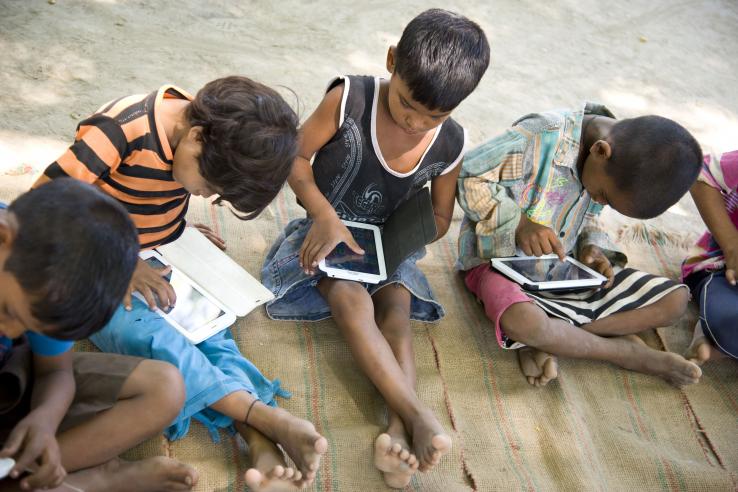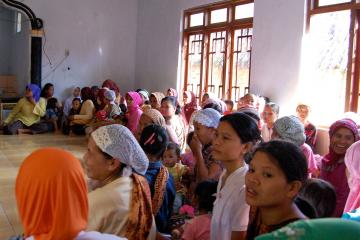
Affiliate Spotlight: Karthik Muralidharan

To read the full profile, please download the PDF version here.
Karthik Muralidharan is the Tata Chancellor’s Professor of Economics at the University of California, San Diego and also serves as a J-PAL Board member and co-chair of the Education sector. A pioneering researcher in education and service delivery, Karthik has profoundly influenced social service delivery in developing countries (especially India) through research and policy partnerships with governments and a body of work spanning over twenty years.
Growing up in India in the 1980s, and observing changes induced by economic liberalization in the 1990s, J-PAL affiliate Karthik Muralidharan developed an interest in the transformative power of public policy at a young age. This focus, along with a passion for education, launched Karthik on a path that would soon become his life’s work.
As a development economist, Karthik studies how scarce resources should be allocated to maximize impact. This research is particularly important to governments seeking to design and implement cost-effective programs on a large scale, where mistakes can be costly and potentially difficult to revert. “Over the past twenty years I’ve seen how there is stunning variation in the cost-effectiveness of policies that sound equally sensible sitting in a conference room,” he observes. “The job of the researcher is to bring objective evidence into the discussion.”
In his role as Co-Chair of the Education sector at J-PAL, Karthik guides the synthesis and dissemination of lessons from hundreds of randomized evaluations on education topics. He also chairs J-PAL’s Post-Primary Education Initiative, which funds randomized evaluations that develop and test innovative solutions for improving access and quality of post-primary education in low- and middle-income countries. Through his leadership at J-PAL, Karthik plays a direct role in shaping the field of education research and policy.
Karthik leads many evaluations related to education and social service delivery, with a focus on helping governments identify the most cost-effective approaches to improving outcomes on a fixed budget. For instance, his work has shown that in low- and middle-income country settings, an unconditional doubling of teacher salaries may have no impact on learning outcomes, while even modest amounts of performance-linked pay to teachers can have large positive impacts. School grants on their own may have no impact on learning, while combining them with performance-based pay for teachers can sharply increase the effectiveness of the grants. Finally, simply providing computer hardware may have no impacts on learning, whereas using technology to personalize instruction may have large gains.
These studies and Karthik’s broader body of research illustrate the wide contrast in cost-effectiveness of public policies and the importance of evaluation as a tool for decision-making.
Working in partnership with central and state governments has underpinned much of Karthik’s most ambitious and influential research. “There is an incredible appetite for good analytical inputs among policymakers,” he notes. Although it can take years to evaluate the impact of some programs, Karthik emphasizes the importance of seeking out this knowledge across programs and contexts. He notes that the impact of research is not usually that of a single study, but rather a body of work that can be synthesized to reveal robust patterns in the evidence and be used to guide policy.
A unifying principle of Karthik’s career is his relentless dedication to improving lives. “One of the best pieces of advice I got from my advisor [Nobel Prize-winning economist and longtime J-PAL affiliate] Michael Kremer, was, ‘Never apologize for the fact that your fundamental motivation is to make sure 200 million kids in India have a better education, and that economics is a tool to get you there.’ It's a very powerful tool, but it's not an end in itself.” In his commitment to ensuring that research has policy relevance, Karthik’s work at J-PAL and longterm partnerships with governments have been instrumental to policy change on a large scale.
Karthik Muralidharan has been a J-PAL affiliate since 2009. For more information about J-PAL and to read about Karthik’s research, visit povertyactionlab.org. You can learn more about Karthik’s journey in education research and policy, in the following conversation.



